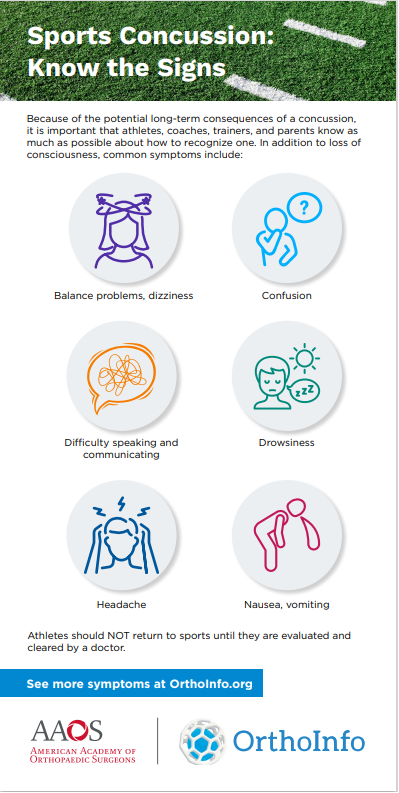A concussion is a type of traumatic brain injury caused by a blow to the head or body, a fall, or another injury that jars or shakes the brain inside the skull. Unlike other injuries, a concussion doesn't involve visible bleeding or bruising on the brain, making it sometimes difficult to diagnose immediately. Concussions occur frequently due to collisions or falls in sports or accidents in daily life. Most concussions improve within a couple of weeks, but some people experience symptoms such as headaches, brain fog, light sensitivity or other post-concussive problems that linger well after the injury occurred.
Concussion is an invisible injury. Because of this, changes in a person's thinking, emotions, and behavior that are due to concussion may not be noticed or may be blamed on other causes. For example, fatigue or difficulty concentrating may be misinterpreted as laziness or disinterest. Concussion affects mental stamina more than intellectual ability. This is because the injured brain must work much harder to accomplish anything and tires more easily. Pressures to return to work, sports or other activities before complete recovery may cause a person to minimize the symptoms of concussion.
Kyle Plante, MD, MPH, is a fellowship-trained primary care sports medicine physician specializing in concussion management who collaborates with the Syracuse Orthopedic Specialists (SOS) Sports Medicine Team to treat SOS patients who also suffer from concussion. Dr. Plante’s sports medicine training has yielded him experience with professional hockey and baseball teams, including the Buffalo Sabres, Rochester Americans, and the Kane County Cougars (the MLB affiliate of the Arizona Diamondbacks). Dr. Plante works to inform others about concussion prevention and treatment and provides the following clarification about concussions.
Concussion Myths Versus Facts
Myth: You need to be “knocked out” or lose consciousness to have a concussion.
Fact: Only around 10% of concussions include loss of consciousness. A loss of consciousness doesn’t necessarily mean the concussion was more severe or that the person would have a longer recovery time.
Myth: You need to have a direct blow to your head to have a concussion, like head-to-head contact in football.
Fact: Concussions can be caused by an abrupt bump or jolt to the body that shakes the head, like whiplash in a car crash or a fall down the stairs.
Myth: You should keep someone with a concussion awake or don’t let them sleep for a long period of time.
Fact: Let them sleep! Unless there are focal neurologic signs (such as differences in pupil size) or evidence of a more severe brain injury (e.g., prolonged loss of consciousness, seizure, etc.), most patients with concussion benefit from sleep.
Myth: I went to the ED or urgent care and got a scan of my head which didn’t show a concussion.
Fact: Concussion is a clinical diagnosis meaning it is based on symptoms and physical exam. It will not show up on traditional imaging (x-ray, CT, MRI, etc.) Many researchers are working to identify markers (e.g. saliva tests) that might someday help identify concussions, but currently concussion is a clinical diagnosis based on a health care professional’s evaluation of symptoms.
Myth: If you don’t have a headache after a hit, you probably didn’t have a concussion
Fact: In some cases, concussion symptoms won’t show up for hours or even days after an injury. Some early symptoms might include feeling “dazed”, confusion, headache, dizziness, and memory loss of the actual event, while more delayed symptoms might include sensitivity to light and noise, irritability, difficulty sleeping, fatigue and depression.
Myth: You must be completely symptom free to begin a return-to play program for your sport or activity
Fact: Your symptoms should be somewhat manageable but the earlier you start beginning a light aerobic activity, the better off you’ll be. The first few “stages” of return-to-play progression are considered treatment stages and early activity after a concussion has been found to reduce symptom duration and magnitude in general.

